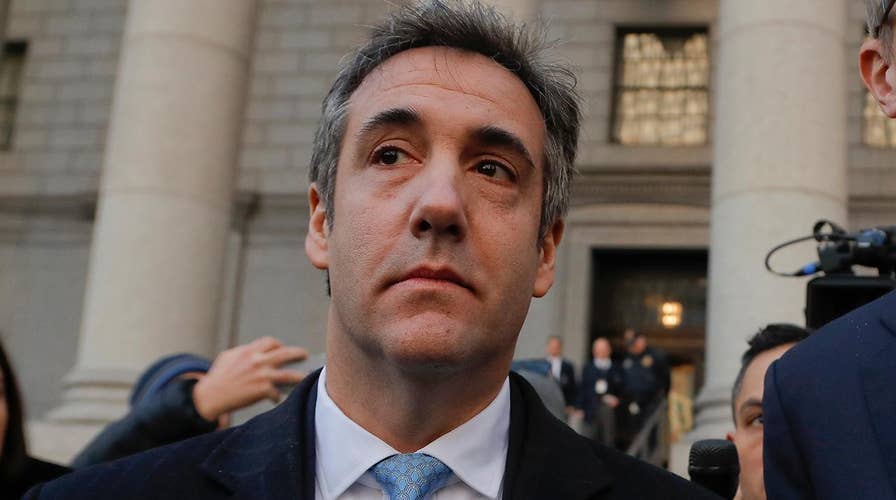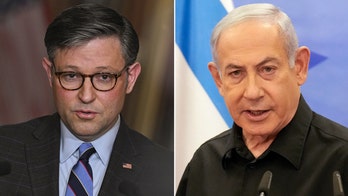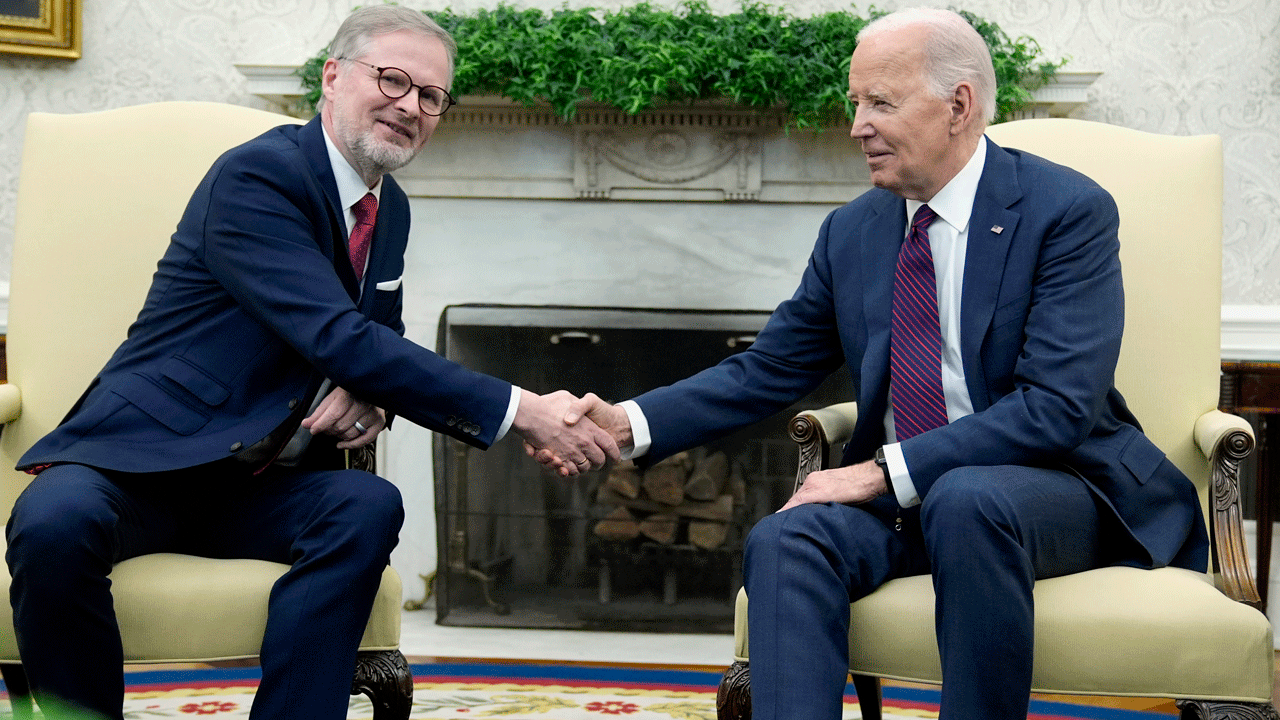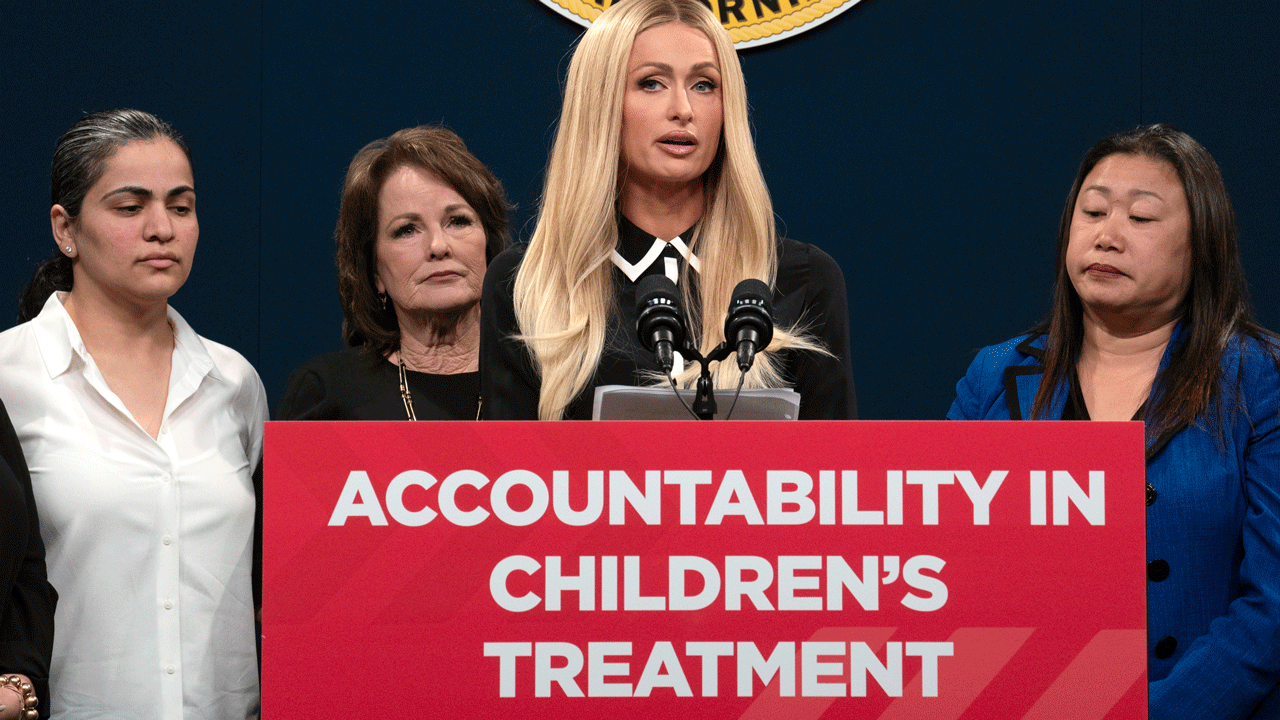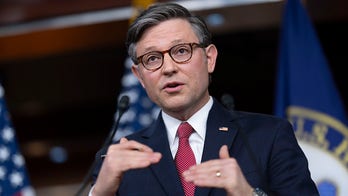Is Michael Cohen a reliable witness for Robert Mueller?
Federal prosecutors recommended a 'substantial term of imprisonment' for President Trump's former personal attorney Michael Cohen
President Trump on Monday denied the hush-money payments to porn star Stormy Daniels and Playboy model Karen McDougal in the weeks leading up to the 2016 election were campaign contributions, instead calling them a "simple private transaction.”
“So now the Dems go to a simple private transaction, wrongly call it a campaign contribution,” Trump tweeted.
Michael Cohen, Trump’s former lawyer, recently admitted in a plea deal to violating federal campaign finance laws by arranging payments to Daniels and McDougal on Trump's behalf, according to the plea. Prosecutors on Friday released a sentencing memo calling for Cohen to a “substantial term of imprisonment” for the president’s former fixer.
On Monday, Trump took aim at Cohen, saying that if a mistake was made and it was considered a contribution, the “liability” should be with the lawyer.
“Cohen just trying to get his sentence reduced,” Trump tweeted. “WITCH HUNT!”
Meanwhile, an expert campaign finance lawyer said in an interview published Monday that he is not impressed with the Department of Justice's evidence that effectively links Trump to campaign finance violations after the recent release of the Cohen sentencing memo.
Dan Backer, the lawyer, told Forbes that there appears to be no evidence to corroborate the DOJ’s apparent assertion of any illegality on Trump's part.
Backer, a veteran campaign counsel, said it is common practice for high-profile individuals and companies to take part in these kinds of payment arrangements. He said Trump is a brand, he has carried out similar payments for years and these so-called "hush-buys" will likely continue.
"Brand protection is not a campaign contribution," he told the magazine.
Prosecutors in New York, where Cohen pleaded guilty in August to campaign finance crimes in connection with those payments, wrote in the filing, "With respect to both payments, Cohen acted with the intent to influence the 2016 presidential election. Cohen coordinated his actions with one or more members of the campaign, including through meetings and phone calls, about the fact, nature, and timing of the payments. In particular, and as Cohen himself has now admitted, with respect to both payments, he acted in coordination with and at the direction of Individual-1.”
The filing does not name Trump, but references "Individual-1," who became president in 2017. Trump has not been charged.
Trump's lawyers have downplayed the severity of campaign finance crimes, but some Democrats consider it an impeachable offense.
"The notion that every penny a candidate personally or professionally spends is somehow reportable to the FEC is utter nonsense," he continued.
On Sunday, Kentucky Republican Sen. Rand Paul told NBC's "Meet the Press" that the web of federal and state campaign finance laws is so complex that it presents fairness issues.
"There are thousands and thousands of rules. It’s incredibly complicated, campaign finance," Paul said. "We have to decide whether or not really criminal penalties are the way we should approach campaign finance."
Cohen's plea does not necessarily indicate that prosecutors could have successfully prosecuted a campaign finance case against Cohen or Trump.
Andrew C. McCarthy, a senior fellow at the National Review Institute, wrote on FoxNews.com that Trump is very likely to be indicted for violating campaign finance laws.
"If the president was not implicated, I suspect they would not have prosecuted Cohen for campaign finance violations at all. Those charges had a negligible impact on the jail time Cohen faces, which is driven by the more serious offenses of tax and financial institution fraud, involving millions of dollars,” he wrote.
Cohen is scheduled to be sentenced Dec. 12.
Fox News' Alex Pappas and Gregg Re and The Associated Press contributed to this report
